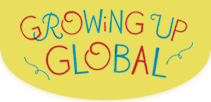(Author’s note: President Trump recently railed against “globalism” and proudly labeled himself to be a “nationalist”. This concerned me greatly, particularly as I thought about courageous educators with whom I’m working across all 50 states: How do you continue developing thoughtful, empathetic global citizens in your classroom when the leader of the United States seems to deride what you’re trying to do? I wrote this short piece to support these patriotic educators, and am grateful to my friends at the Asia Society Center for Global Education who shared this on their GLOBAL LEARNING column in Education Week, found in this hyperlink).
This isn’t the easiest time to be a global educator. Words like empathy, global, and inclusion are becoming politicized, and some feel that more challenging topics, like race, religion, borders, and refugees are nearly untouchable. But we cannot afford avoiding these important ideas for fear of being too political. If we do, our children (and our country) lose.
 The recent rhetoric around globalism and nationalism reinforces a false dichotomy that so many of us have been working hard to dispel. When Donald Trump told supporters at a rally in Houston on October 22 that “A globalist is a person who wants the globe to do well, frankly, not caring about our country so much,” it felt like a kick in the gut.
The recent rhetoric around globalism and nationalism reinforces a false dichotomy that so many of us have been working hard to dispel. When Donald Trump told supporters at a rally in Houston on October 22 that “A globalist is a person who wants the globe to do well, frankly, not caring about our country so much,” it felt like a kick in the gut.
Nothing could be farther from the truth. Why frame this as an ‘either-or’? Can’t we love our world and our country at the same time? Gaining a global mindset based on intellectual, social, and psychological capital, not being ruled by fear, is a privilege every child deserves. It makes our country stronger.
I take a stand for global citizenship, global engagement, global good, global caring, global competence, global know-how, global markets, global travel, global jobs, global friendships, global technology, global diplomacy, and global peace. No corporation or billionaire has ever swayed me to think this way; indeed, when students in marginalized communities embrace global and abundant thinking and skills, such as learning a second language, analyzing from various perspectives, or being comfortable working in diverse environments with diverse people, their prospects for college and career skyrocket.
 In my definition of global citizenship, what some might call globalism, this also means that I care deeply, pay attention to, get engaged with, enjoy serving, am proud of and love: my country, my town, my community, and my neighbors. I remember the old Girl Scout song: “Make new friends, but keep the old, one is silver and the other gold,” and I apply this idea in my thinking and teaching: it’s not ‘either-or’; it’s ‘both-and’—inclusive, welcoming, and abundant. This also is the sort of mindset leaders are looking for to fill jobs in the new economy, to solve problems we’ve never faced before, using technologies that have yet to be invented.
In my definition of global citizenship, what some might call globalism, this also means that I care deeply, pay attention to, get engaged with, enjoy serving, am proud of and love: my country, my town, my community, and my neighbors. I remember the old Girl Scout song: “Make new friends, but keep the old, one is silver and the other gold,” and I apply this idea in my thinking and teaching: it’s not ‘either-or’; it’s ‘both-and’—inclusive, welcoming, and abundant. This also is the sort of mindset leaders are looking for to fill jobs in the new economy, to solve problems we’ve never faced before, using technologies that have yet to be invented.
I subscribe to a big idea that might help illustrate this approach: “Let your vision be world-embracing, rather than confined to your own self.” This inherently means I care about my country and community, and strive to think bigger than myself. Going bigger than my ego and fears releases me to make a difference and find joy. Doesn’t every American deserve that?

